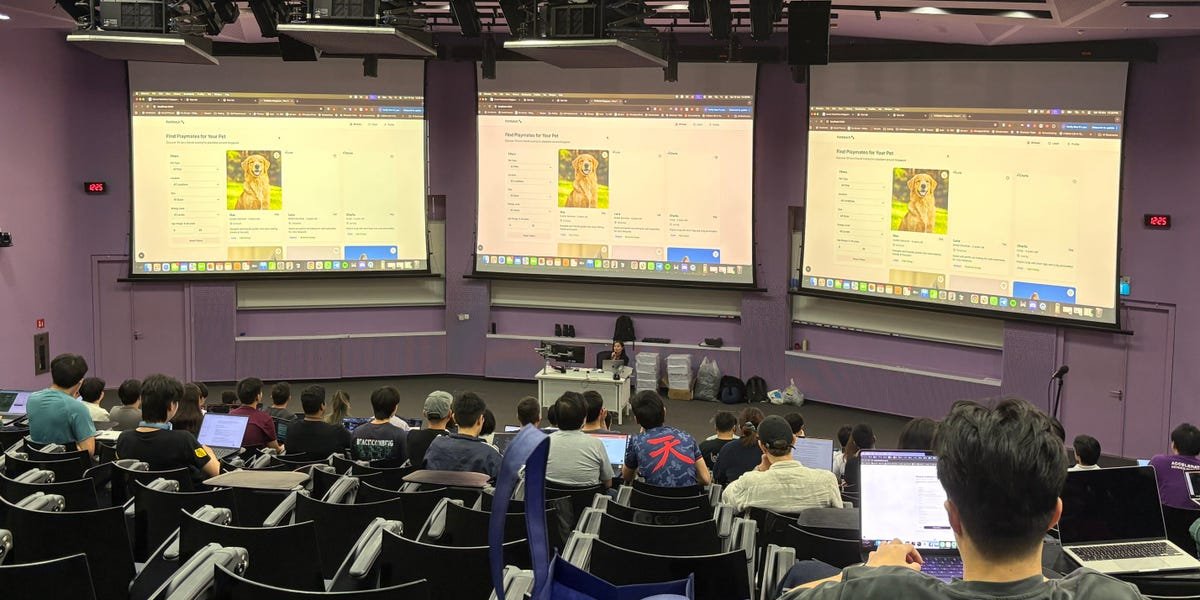The Evolution of AI Founders: A New Generation in Tech Innovation
The landscape of tech startups is undergoing a significant transformation, particularly within the realm of artificial intelligence (AI). A recent report by Leonis Capital sheds light on the evolving profiles of AI founders and their teams, indicating that today’s entrepreneurs differ markedly from those who historically dominated the tech space.
A Younger, More Technical Breed
Current AI founders are significantly younger than their predecessors. The median age has dropped from 34 during the 2010s to just 29 today, with many founders frequently in their mid-20s. For instance, the founders of AI coding tool Cursor were in their early 20s, and 28-year-old Aravind Srinivas co-founded the AI search platform Perplexity. This trend underscores a noteworthy shift in entrepreneurship, with youth appearing to favor technical proficiency over business acumen.
Moreover, today’s founders are more likely to possess advanced degrees in mathematics or technical disciplines. According to the Leonis report, a considerable number of them hold PhDs or have accolades such as math Olympiad medals. This emphasis on deep technical expertise is driving a new model of startup leadership, where technical ability is paramount.
The Shift from Business Mindedness to Technical Prowess
Historically, many tech unicorns of the previous decade, like Airbnb and LinkedIn, were often led by individuals with business backgrounds, such as product managers and MBAs. Today, AI startups appear to have reversed this trend. As Jenny Xiao, a partner at Leonis and former OpenAI researcher, articulates, "In AI, the tech is the product." This differentiation indicates that the essence of competition has shifted; rather than being an enabler for a service or product, the technology itself is now the core offering.
This transition is reflected in how these startups approach product development and innovation. AI founders are often emerging from elite institutions like MIT and Stanford, with over 60% of top-tier AI founders having graduated from such prestigious schools. The importance of academic pedigree serves as a signal for both investors and the industry at large.
Smaller, Agile Teams
Alongside the demographic shift among founders, the composition of startup teams is evolving as well. Teams are becoming smaller and more agile, often with fewer hierarchical layers. In these lean structures, CEOs are directly involved in various layers of management, a departure from the more traditional, top-down management styles seen in earlier tech companies.
Xiao suggests this shift could be partly driven by efficiency pressures within the technology space, where AI is rapidly replacing certain job functions and encouraging a reorganization of roles within companies. As jobs become automated, many startups find themselves shedding middle-management layers in favor of a more streamlined approach.
Rapid Scalability and Market Adaptation
AI startups are also realizing impressive growth rates, often scaling their revenue at remarkable speeds. For example, Cursor achieved $100 million in annual recurring revenue within just a year—an impressive feat compared to the three years it took Slack to reach the same milestone. This rapid growth can be attributed to AI’s capability to enhance productivity and reduce the time required to generate substantial revenue.
Additionally, the agility of these new ventures allows them to pivot quickly in response to evolving market conditions and advancements in AI model capabilities. Unlike their predecessors, who may have had to navigate complex legacy structures and bureaucracies, today’s founders can implement changes swiftly, ensuring they remain competitive in a fast-changing landscape.
The Role of Venture Capital
Venture capital (VC) funding is crucial in supporting this new wave of AI startups. According to the Leonis report, Y Combinator stands out as a leading VC firm, backing over 20% of the top 100 fastest-growing AI startups. Meanwhile, established firms like Andreessen Horowitz and Sequoia are adapting their strategies to invest earlier in startups, signaling an eagerness to support the burgeoning field of AI innovation.
This evolving financial landscape underscores the attractiveness of AI startups not only to entrepreneurs but also to investors hoping to capitalize on groundbreaking advancements in technology that promise efficiency, scalability, and novel solutions to complex problems.
The rise of a younger, more technically adept generation of AI founders represents a paradigm shift in the tech industry. Their emphasis on technical innovation, coupled with smaller teams and rapid scalability, holds the potential to reshape not just the tech landscape, but the very fabric of how businesses are built and operate in the digital age.





